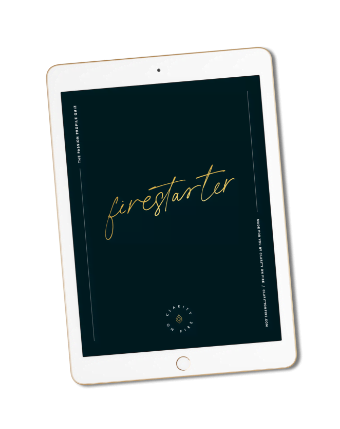“We do not see the world as it is, we see it as we are.” – Anais Nin
In any given moment, we’re all making interpretations about our environment, other people, a situation, or even ourselves. Sure, this can be helpful when you need to quickly assess a person or situation, but interpretations can quickly become barriers when you start to believe them as truth.
There are always two ways to view any situation:
The (big “T”) Truth – This is the just-the-straight-up-facts, universal truth.
vs.
The (little “t”) truth – This is your interpretation according to the lens through which you’re viewing the situation.
It can be eye-opening to simply state the facts without bias, interpretation, or judgment, and then determine how that may differ from your view of the situation. This can seriously help put things into perspective.
How about we give an example? Let’s say…
“Truth” – Your boss has been overly critical of your work lately and he seems distracted and dismissive every time you try to ask a question.
“truth” – So, naturally, you assume he doesn’t respect you or value your work.
OK, maybe it’s true that your boss is just a jerk, but this certainly isn’t the only, or even the most likely answer. There are tons of other factors that may be causing your boss’ negative attitude. Maybe his wife just got laid off. Maybe his kid is sick. Maybe he’s getting pressure from HIS boss and he’s taking it out on you.
The problem with interpretations is that they put blinders over your eyes so it feels like your perception is the only reality. Until you separate the “Truth” from the “truth,” your interpretation can make you feel trapped, like you’re a victim to the situation.
Your behavior, then, will reflect what you perceive. So if your interpretation is that your boss doesn’t value you, you’ll probably try to avoid him because you feel self-conscious and resentful at work (which certainly won’t improve your relationship with your boss). If, however, your interpretation is that your boss must feel stressed for some reason or other, you may decide to ask for more responsibility or offer up new ideas to improve efficiency and reduce his workload (which may set you up for a promotion or raise down the road).
Your interpretation shifts your thoughts, which shift your behavior, which shifts your world.
Where in your life are you making interpretations about a situation or another person? What’s the “big T” truth vs. the “little t” truth? What are some other possible interpretations?
Share your answers in the comments below – we’d love to hear from you!
Much love,
Kristen & Rachel


